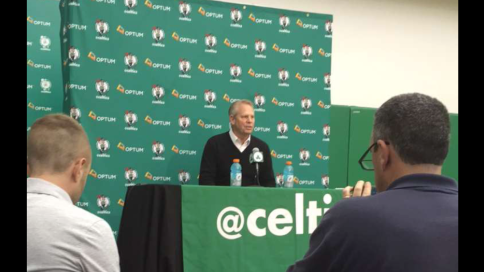WCVB is #1 for news in Boston, so I don’t see a need for too many large institutional changes to the organization. That being said, there are always ways to progress and evolve, as the field of broadcast journalism itself is constantly advancing.
I feel that the station would run more smoothly and effectively if we changed the layout of the office space. The sports department, for example, is completely isolated – upstairs in a stuffy office with no windows or neighbors. If I were CEO, I would get all the departments (news, sports, and weather) together in the same newsroom, so that everyone would be more in sync with the overall broadcast. Not only that, but producers and reporters from different departments could bounce ideas off of each other and be inspired by one another. Expanding the newsroom to include sports and weather would create more communication and collaboration within the station.
Fresh and different perspectives are always helpful, which is why I would be intentional in bringing more diversity to the station. While I am, to some extent, talking about racial, ethnic, gender, and religious diversity, I am mostly talking about cognitive diversity (people who think differently). I believe that this would foster more creativity in the daily broadcasts, keeping us away from monotony.
As CEO, I would want to make sure that everyone from our anchors, to our producers, to our video editors is in tune with the climate of our field. That is why I would routinely bring in lecturers and speakers to push our station’s thinking. When I attended the social media lecture at the station (which was apparently a rare occurrence), I found that it prompted a lot of discussion and dialogue about how WCVB functions, and whether we were operating in accordance with our overall goals. Such discussion infuses engagement to the employees, and keeps us from getting stagnant.
While the culture at WCVB-TV is one of integrity, sincerity, and achievement, I believe that it’s possible to develop our culture even more to encourage more collaboration and creativity. As CEO, implementing these changes would be a strong priority. Of course, if I were really to become CEO, I would also probably be leaving U-M…ain’t nobody got time for CEO stuff and exams.



